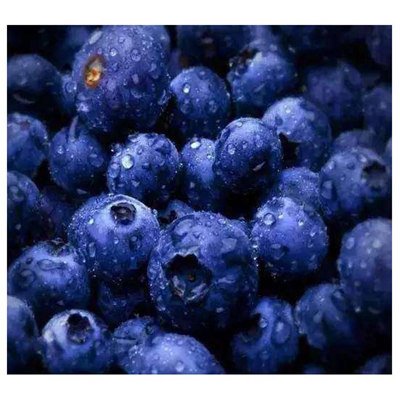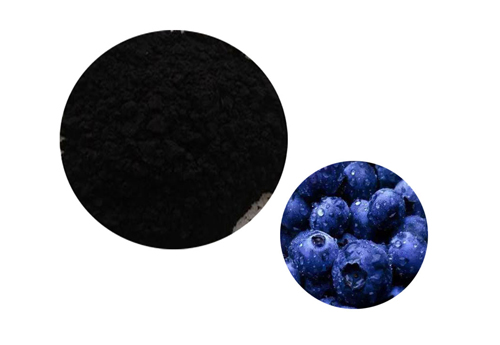Jan. 19, 2022
Blueberries are a North American favorite, and most people are certain they can recognize a blueberry if they see one. But bilberry, their European relative, looks almost identical. Bilberries also have similar nutritional value but are richer in anthocyanins – powerful, bright-colored antioxidants, yet both are healthy and tasty. Read on to find out how these two berries differ! Next, the bilberry extract supplier will share it with you.
Although they are closely related and belong to the same family (Ericaceae), bilberries and blueberries are different. How can you spot the difference?
Bilberry (Vacciniummyrtillus) is a small bush with small, dark blue/purple berries. It is also known as European blueberry or whortleberry. The plant is native to forests and mountains of northern and central Europe but also grows wild in North America.

Bilberry
Blueberries (Vacciniumspp., especially V. corymbosum) are a group of widely cultivated bushes native to North America. Their fruits are similar to bilberries but grow in clusters and have pale greenish flesh with a flared crown at the end.
Simply put: if you’re in North America and see a plant that fits the description above in the wild, it’s probably a blueberry (or bearberry) bush. Some bilberry varieties do grow in the US, but these are not easy to find. The opposite is true for Europeans.
The US imports bilberries from Europe and, if you’re lucky, you may be able to find some frozen bilberries in stores.
These two berries also differ in their active compounds.
Bilberry is a popular fruit to snack on in Europe. People usually collect berries from wild plants. Both blueberries and bilberries are eaten fresh, frozen, or dried. They can also be made into jams, juices, liquors, pies, and yogurts. But bilberries, unlike blueberries, are almost impossible to cultivate and harvest.
On the other hand, anyone who has tasted bilberry or wild blueberry will tell you that cultivated blueberries are nothing like it.
Wild blueberry and bilberry are similar enough: mildly sweet, and have a strong taste and color that comes from their high anthocyanin content.
Anthocyanin plant pigments in wild blueberries and bilberries are so strong that they will cover your hands and mouth with a bluish-red tint that’s not easy to wash out. But precisely this gives them a characteristic flavor.
Cultivated blueberries, on the other hand, are sweeter and white on the inside. They won’t stain your skin, but their flavor is much less intense.

Bilberry Extract
Bilberries have much higher levels of the anthocyanins cyanidin, delphinidin, and peonidin, while blueberries are richer in malvidin. Being higher in total anthocyanins, bilberries carry more antioxidant power. In fact, bilberries are among the richest anthocyanin sources, supplying 300-700 mg per 100 g berries. However, blueberries have higher levels of other phenolic compounds such as chlorogenic and coumaric acid, rutin, resveratrol, and epicatechin.
Because both fruits are rich in antioxidants, they may be used for similar conditions. However, folk medicine uses bilberries more often for eye problems, blood flow, and diarrhea, while blueberries are preferred for chronic fatigue syndrome, cognitive function, and urinary tract infections.
In terms of nutritional value, these two berries are very similar, but raw bilberries seem to beat frozen blueberries when it comes to some nutrients.
YouBio has focused on the extraction, separation, and refinement of natural products for over two decades. We set “Care for Life" as our goal and devoted ourselves to the cause of human health. By now we have developed and produced more than 100kinds of plant extracts as well as natural ingredients. Welcome to contact us today or visit our website to learn more about bilberry extract for sale.
Navigation
Tel.: +86 29 8832 8887
Mob.: +86 137 5996 2312
Email: info@youbiolife.com
Add.: Room 1007, Block B, Huixin IBC, No. 1 Zhangbayi Road, Xi'an, Shaanxi Province
Request a Quote